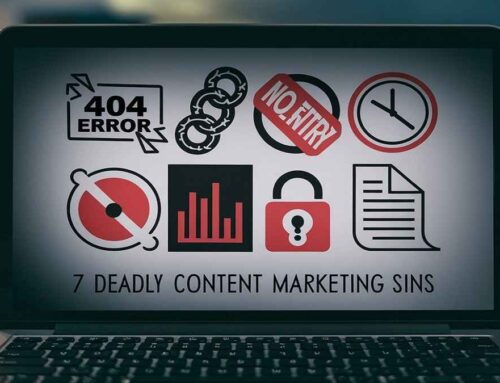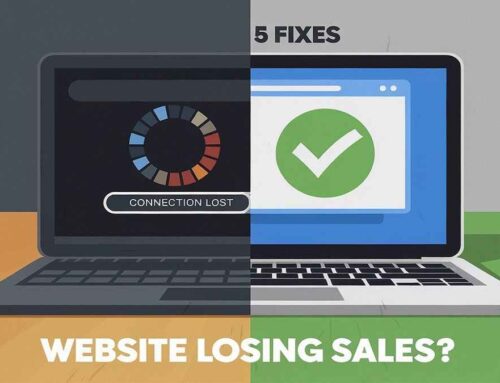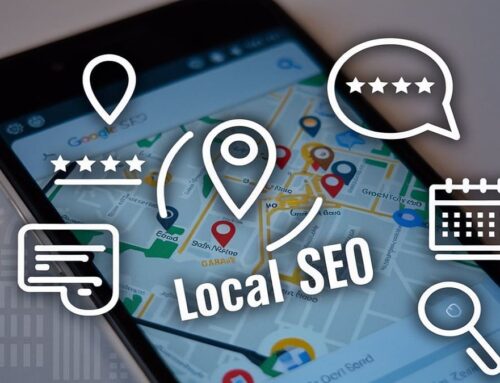
The Power of Influencer Marketing
In the digital age, the landscape of marketing has dramatically shifted. Traditional advertising methods are being eclipsed by more innovative and engaging approaches. Among these, influencer marketing has emerged as a powerful strategy for brands looking to connect with their audience in a genuine and impactful way.
By partnering with social media influencers, businesses can leverage the trust and credibility these individuals have built with their followers to promote their products or services. In this article, we will explore the dynamics of influencer marketing, its benefits and how to effectively collaborate with influencers to achieve your marketing goals.
Understanding Influencer Marketing
Influencer marketing involves collaborating with individuals who have a significant following on social media platforms. These influencers can range from celebrities and industry experts to micro-influencers with smaller but highly engaged audiences.
What sets influencers apart is their ability to sway their followers’ opinions and purchasing decisions through authentic content and personal recommendations.
The essence of influencer marketing lies in its authenticity. Unlike traditional advertisements, which often feel impersonal and intrusive, influencer marketing feels more like a trusted friend giving a recommendation.
This personal touch makes influencer marketing highly effective, as consumers are more likely to trust and act on recommendations from people they follow and admire.
The Rise of Social Media Influencers
The rise of social media platforms like Instagram, YouTube, TikTok and Twitter has given birth to a new breed of celebrities: social media influencers. These individuals have built substantial followings by consistently creating content that resonates with their audience.
Whether it’s fashion, beauty, travel, fitness or any other niche, there’s an influencer for nearly every interest and demographic.
The appeal of influencers lies in their relatability. Unlike traditional celebrities, influencers often share their daily lives, struggles and successes with their followers. This transparency fosters a sense of connection and trust that is hard to replicate through traditional advertising methods.
As a result, brands are increasingly turning to influencers to reach their target audience in a more authentic and engaging manner.
Benefits of Influencer Marketing
- Enhanced Credibility and Trust: Influencers have built their reputation on authenticity and trust. When they endorse a product or service, their followers are more likely to believe in its value and benefits. This credibility can significantly boost a brand’s reputation and trustworthiness.
- Targeted Reach: Influencers have a deep understanding of their audience and create content that caters to their interests and preferences. By partnering with influencers, brands can tap into specific demographics and reach potential customers who are genuinely interested in their offerings.
- Increased Engagement: Influencer marketing campaigns tend to generate higher engagement rates compared to traditional advertising. Followers are more likely to like, comment and share content from influencers they admire, which can amplify a brand’s message and increase its visibility.
- Authentic Content Creation: Influencers are skilled content creators who know how to craft compelling and visually appealing posts. By collaborating with influencers, brands can benefit from high-quality content that showcases their products in an authentic and creative way.
- Cost-Effective: Influencer marketing can be more cost-effective than traditional advertising methods. While top-tier influencers may command high fees, micro-influencers often offer more affordable partnership options while still delivering impressive results.
How to Partner with Influencers
To harness the power of influencer marketing, brands need to approach partnerships strategically. Here are some key steps to consider when partnering with social media influencers.
- Define Your Goals
Before reaching out to influencers, it’s essential to define your marketing goals. Are you looking to increase brand awareness, drive sales or promote a specific product? Clear goals will guide your influencer selection and campaign strategy.
- Identify the Right Influencers
Choosing the right influencers is crucial for the success of your campaign. Look for influencers whose audience aligns with your target demographic and whose values and content style match your brand’s identity. Tools like social media analytics and influencer marketing platforms can help you find suitable candidates.
- Build Authentic Relationships
Building genuine relationships with influencers is key to successful collaborations. Engage with their content, share their posts and show appreciation for their work. When reaching out, personalize your messages and explain why you believe they would be a great fit for your brand.
- Set Clear Expectations
When partnering with influencers, it’s important to set clear expectations regarding deliverables, timelines and compensation. Draft a detailed agreement that outlines these terms to avoid any misunderstandings. Be transparent about your goals and provide creative freedom to the influencer to ensure authentic content.
- Monitor and Measure Results
Track the performance of your influencer marketing campaign to gauge its effectiveness. Use metrics like engagement rates, website traffic and sales conversions to assess the impact of the partnership. Analyzing these results will help you refine your strategy for future collaborations.
- Foster Long-Term Partnerships
While one-off collaborations can be beneficial, fostering long-term partnerships with influencers can yield even greater results. Long-term partnerships allow influencers to develop a deeper understanding of your brand and create more consistent and authentic content over time.
Successful Influencer Marketing Campaigns
Several brands have successfully leveraged influencer marketing to achieve remarkable results. Here are a few examples.
Daniel Wellington, a watch brand, is often cited as a prime example of successful influencer marketing. The brand partnered with a wide range of influencers, from fashion bloggers to fitness enthusiasts, to promote its stylish and minimalist watches. By providing influencers with discount codes and incentives to share with their followers, Daniel Wellington created a sense of exclusivity and urgency. The campaign resulted in significant brand exposure and sales growth.
Beauty brand Glossier has built its entire marketing strategy around influencer partnerships. The brand collaborates with micro-influencers and everyday customers who genuinely love their products. Glossier encourages these influencers to share their personal experiences and skincare routines, creating authentic and relatable content. This approach has helped Glossier build a loyal community of brand advocates and achieve rapid growth in the competitive beauty industry.
Gymshark, a fitness apparel brand, has effectively used influencer marketing to establish itself as a leading player in the fitness industry. The brand partners with fitness influencers and athletes who embody its values and lifestyle. These influencers create workout videos, share fitness tips and showcase Gymshark’s products in action. The authentic and aspirational content generated by these influencers has played a crucial role in Gymshark’s success.
Fabletics, a popular activewear brand co-founded by actress Kate Hudson, has effectively used influencer marketing to grow its customer base. The brand collaborates with fitness influencers and celebrities to promote its stylish and affordable workout gear. By leveraging the reach and credibility of these influencers, Fabletics has been able to attract a large and loyal customer base, particularly through Instagram.
Audible, an audiobook and spoken-word entertainment company, has utilized influencer marketing to reach a diverse audience. By partnering with influencers from various niches, including book bloggers, lifestyle vloggers and podcast hosts, Audible has successfully promoted its vast library of audiobooks. Influencers share their personal listening experiences and recommend specific titles, making it easier for followers to discover and try Audible’s service.
HelloFresh, a meal kit delivery service, has leveraged influencer marketing to showcase the convenience and quality of its products. The brand partners with food bloggers, chefs and lifestyle influencers who create engaging content around meal preparation using HelloFresh kits. This content not only highlights the ease of cooking with HelloFresh but also provides followers with creative recipe ideas and cooking tips, driving brand awareness and subscriptions.
Challenges and Considerations
While influencer marketing offers numerous benefits, it’s not without its challenges. Here are some considerations to keep in mind.
- Authenticity Concerns
The authenticity of influencer marketing can sometimes be called into question, especially when influencers endorse products they don’t genuinely use or believe in. To maintain credibility, brands should prioritize partnerships with influencers who have a genuine connection to their products.
- Measuring ROI
Measuring the return on investment (ROI) of influencer marketing can be challenging. While engagement metrics provide insights into a campaign’s reach, tracking direct sales and conversions requires robust analytics and tracking tools. Brands should establish clear KPIs and use tracking mechanisms to measure the impact of their campaigns.
- FTC Compliance
The Federal Trade Commission (FTC) has guidelines in place to ensure transparency in influencer marketing. Influencers must disclose their relationships with brands and clearly indicate when a post is sponsored. Brands should educate influencers about these guidelines and ensure compliance to avoid legal issues and maintain trust with their audience.
- Evolving Algorithms
Social media algorithms are constantly evolving, which can impact the visibility of influencer content. Brands need to stay updated on algorithm changes and adapt their strategies accordingly. Building a diverse influencer portfolio and exploring multiple platforms can help mitigate the risks associated with algorithm shifts.
Best Practices for Influencer Marketing
To ensure the success of your influencer marketing campaigns, consider the following best practices.
- Prioritize Authenticity
Authenticity is the cornerstone of influencer marketing. Collaborate with influencers who genuinely use and appreciate your products. Encourage them to share their honest experiences and opinions, as this will resonate more with their audience and build trust.
- Diversify Your Influencer Portfolio
Work with a mix of macro-influencers, micro-influencers and even nano-influencers to reach different segments of your target audience. Each type of influencer brings unique advantages and a diverse portfolio can help you maximize your campaign’s impact.
- Encourage Creative Freedom
While it’s important to provide influencers with guidelines and key messages, allow them creative freedom to express their individuality. Influencers know their audience best and their unique voice and style will make the content more engaging and authentic.
- Leverage User-Generated Content
Encourage your followers and customers to create and share content featuring your products. User-generated content can enhance the authenticity of your brand and provide you with a wealth of valuable assets for your marketing campaigns.
- Track Performance Metrics
Use analytics tools to track the performance of your influencer marketing campaigns. Monitor key metrics such as engagement rates, reach, website traffic and sales conversions. Analyzing these metrics will help you understand what’s working and where you can improve.
- Foster Long-Term Relationships
Consider building long-term partnerships with influencers who consistently deliver results. Long-term collaborations can lead to more authentic and cohesive content, as influencers become more familiar with your brand and products.
The Future of Influencer Marketing
As social media continues to evolve, so too will influencer marketing. Here are some trends that are shaping the future of this dynamic industry.
- Rise of Micro-Influencers
Micro-influencers, who typically have smaller but highly engaged followings, are gaining popularity among brands. These influencers often have a more niche audience and can deliver higher engagement rates. Collaborating with multiple micro-influencers can provide brands with a cost-effective way to reach diverse demographics.
- Video Content Dominance
Video content is becoming increasingly popular on social media platforms. Influencers are leveraging video formats like Instagram Stories, TikTok videos and YouTube vlogs to create engaging and interactive content. Brands should prioritize video collaborations to capture the attention of their audience.
- Authentic Storytelling
Authentic storytelling will remain a cornerstone of influencer marketing. Brands that focus on building genuine connections with influencers and encouraging them to share their personal experiences will continue to see success. Authenticity and transparency will be key to maintaining trust with consumers.
- Integration of E-commerce
Social media platforms are integrating e-commerce features that allow users to shop directly from influencer posts. This seamless shopping experience can drive higher conversions and sales. Brands should explore these features and collaborate with influencers to create shoppable content.
- Data-Driven Insights
Data analytics will play a crucial role in influencer marketing. Brands will increasingly rely on data-driven insights to identify the right influencers, measure campaign performance and optimize their strategies. Advanced analytics tools will provide deeper insights into audience demographics, engagement patterns and ROI.
Conclusion
Influencer marketing has revolutionized the way brands connect with their audience, offering a powerful and authentic approach to promoting products and services.
By partnering with social media influencers, brands can leverage the trust and credibility these individuals have built with their followers, resulting in enhanced brand awareness, increased engagement and ultimately, business growth.
As the digital landscape continues to evolve, staying ahead of trends and adopting best practices will be crucial for brands looking to maximize the impact of their influencer marketing efforts.
By prioritizing authenticity, diversifying influencer portfolios, encouraging creative freedom, leveraging user-generated content, tracking performance metrics and fostering long-term relationships, brands can create successful and sustainable influencer marketing campaigns.
In a world where consumers are increasingly seeking genuine connections and personalized experiences, influencer marketing stands out as a powerful tool to build lasting relationships and drive meaningful results.
Embrace the power of influencer marketing and unlock the potential to connect with your audience in ways that traditional advertising simply cannot match.















I’m impressed, I have to say. Really rarely do I encounter a blog that’s both educative and entertaining, and let me tell you, you’ve got hit the nail on the head. Your concept is excellent; the issue is one thing that not enough persons are speaking intelligently about. I’m very blissful that I stumbled across this in my search for something regarding this.